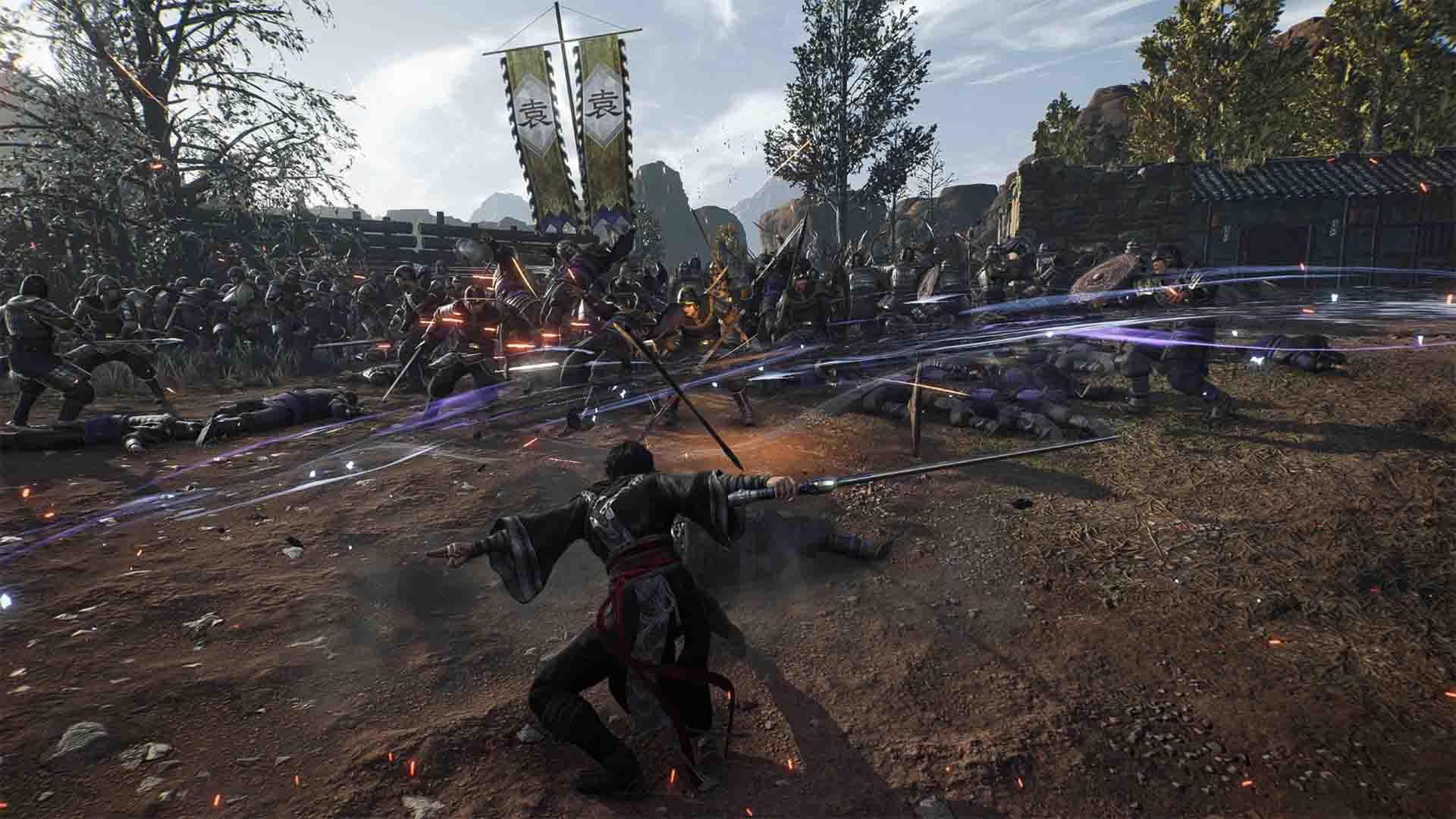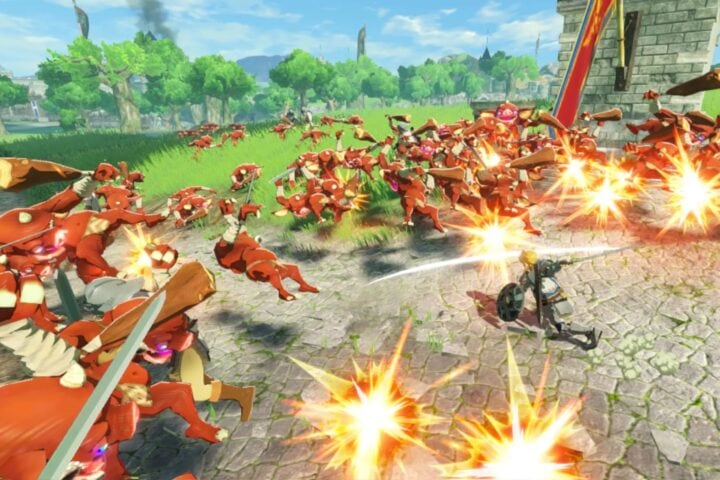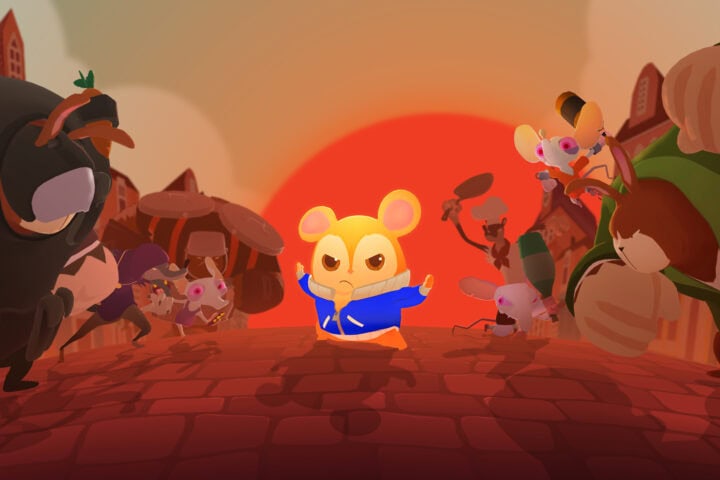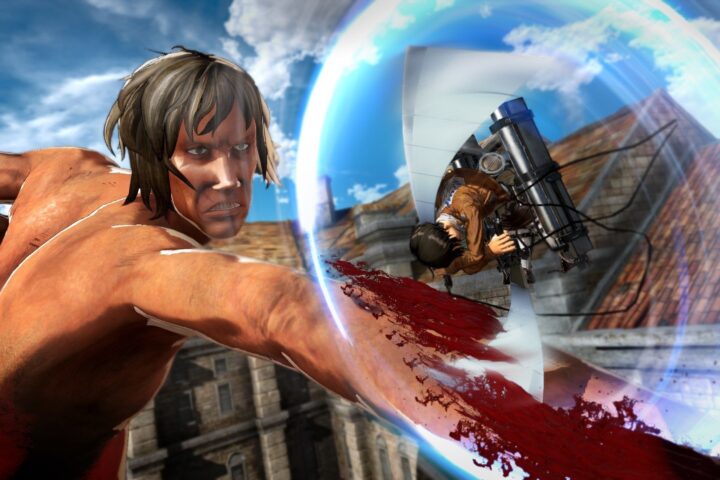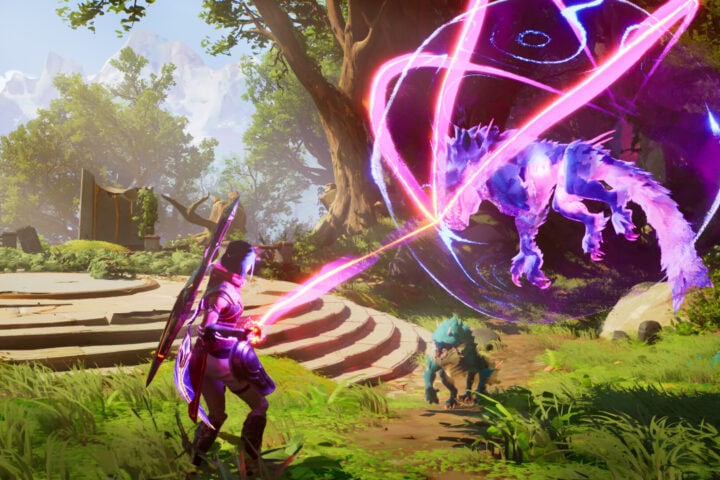Originally an action spinoff of developer Koei’s turn-based strategy Romance of the Three Kingdom games based on the Chinese novel of the same name, the Dynasty Warriors series would establish its own genre of action, musou, in which a single character faces masses of opponents. Dynasty Warriors: Origins is the first mainline entry since 2018’s disappointing Dynasty Warriors 9 and seeks to return to the franchise’s roots, adapting the first half of the original Romance of the Three Kingdoms novel. Here, the player takes the role of an amnesic lone wanderer who becomes pivotal in the war for the kingdoms fighting for control of China, while trying to rediscover his identity and reconnect with history.
As a musou game, Origins is a spectacular technical achievement that takes full advantage of modern hardware to present amazing large-scale feudal battles from a boots-on-the-ground perspective. The Warriors series, including its spinoffs (from Hyrule Warriors to Persona 5: Strikers), has always featured scores of enemies and large maps for the player to take to but usually at the expense of framerate or draw distance. Not so here, where literally thousands of warriors will duel on enormous battlefields, and the player can launch hundreds of soldiers through the air with a single sword swing. As a power fantasy in an action video game, it’s second to none, and Origins boasts endlessly addictive gameplay across its lengthy campaign.
Building on the strong basis of the series, Origins doesn’t break from the core musou gameplay formula, where the player and their allies are placed on the map and given individual objectives to pursue, typically engaging with and defeating major opponents within a time limit. And the game builds upon this with an ever-expanding roster of weapons that can be purchased in towns or unlocked after beating specific enemies, and whose abilities can be enhanced.
Origins seamlessly has the player take to battle against larger, weaker mobs of enemies where single attacks will defeat dozens, sometimes hundreds of soldiers in a single swing, then fight more intense duels against stronger boss-like warriors that—unlike larger area-of-effect attacks that annihilate lesser foes—demand parrying and close-combat attacks. Throughout, mastering the combat involves understanding what approach to take to each encounter.
Origins also has variety in its mission design, with smaller side missions and Skirmishes where the player can take to smaller settings with faster objectives, alongside the story missions across large battlefields that provide a more tactical gameplay experience. Everything from protecting allies and besting the toughest of foes before time limits expire and figuring out how to get from one side of a fight to the other adds additional depth to the experience.

Taking on an enemy commander in the middle of his army, fighting him to submission, then immediately laying waste to the hundreds of soldiers surrounding him with one thrust of a spear is as fun as it is preposterous. Few action games offer this kind of engaging, addictive gameplay experience, and when it all comes together, Origins represents the absolute best of its genre.
But while its combat system and moment-to-moment gameplay is stellar, Origins falls short narratively. The decision to make the protagonist a blank-slate Mary Sue is an attempted shot at universal appeal, but your uncustomizable lone wanderer is so dull that it’s hard to invest in anything they do. The game uses a dialogue-tree system to suggest that the player is making choices, but these don’t branch meaningfully until the player chooses their alliance later in the game. Worse, the surrounding characters are similarly uncharismatic and thinly developed beyond the basics of the existing storyline that there’s little reason to invest in them either.
There’s a cognitive dissonance to a game whose core is built around joyful excess and ridiculousness yet is so somber, subdued, and joyless when it comes to its narrative and characters. (While there’s some humor and levity in exchanges with specific characters, these are comparatively rare.) Fortunately, the game’s spectacle is strong enough to overcome such deficiencies. Part of this comes down to the size and breadth of the campaign, which forks into paths later in the narrative but still allows the player to return to and replay previous sections, and also make new choices to see the different outcomes without any kind of cost or penalty.
Further, the expansive customization options for the weapons and abilities match customizable difficulty settings that will please purists, with rewards that match the demanding challenge of the hardest the game has to offer. At the very least, Origins presents an excellent technical and mechanical basis from which the Dynasty Warriors can rebuild, and hopefully return to form in the wake of later entries in the series, like Dynasty Warriors 8, having fallen so short.
This game was reviewed with a code provided by ONE PR Studio.
Since 2001, we've brought you uncompromising, candid takes on the world of film, music, television, video games, theater, and more. Independently owned and operated publications like Slant have been hit hard in recent years, but we’re committed to keeping our content free and accessible—meaning no paywalls or fees.
If you like what we do, please consider subscribing to our Patreon or making a donation.

